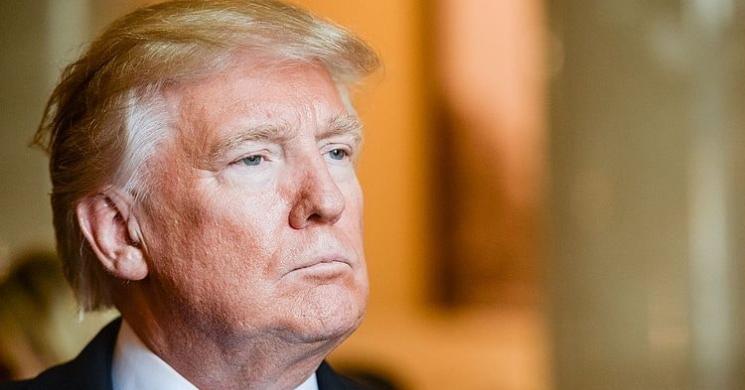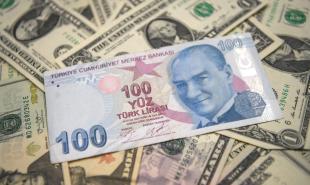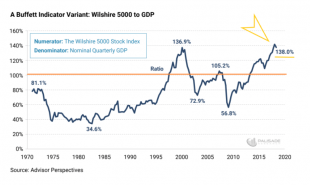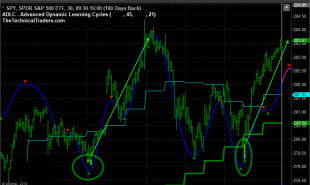
Trump Flip-Flops on 5 Key Campaign Promises in a Day — War Spending Now Priority
Claire Bernish and thefreethoughtproject.com
If campaign promises were made to be broken, Donald Trump is doing a bang-up job — he somehow managed to roll back five major platform staples in a period of mere hours — leaving little room to describe the reality TV host-turned world leader as anything but a typical, warmongering, waffling American president.
What was that about a swamp?
Thus far in his tenure, President Trump has done little to fulfill much of the hype generated during his candidacy, seemingly opting to instead carry out business-as-usual in Washington — from adopting pernicious interventionist strategies overseas to walking back a tough stance on the Federal Reserve — in no way could he still be described as an anti-establishment savior.
This is the United States, after all, and everything — even the seemingly otherwise inexplicable — comes down to the business of war.
Although the list of Trump’s flip-flops could easily consume pages, the following five items prove it’s time for the president’s original support base to admit maybe — just maybe — they’ve been hoodwinked.
NATO
After raging endlessly against NATO during his campaign — going so far as to say he’d pull the United States out of it — Donald Trump proved, or at least we thought, that he was no fan of NATO.
However, during a press conference on Wednesday, Trump said NATO is “no longer obsolete.”
“I said it was obsolete. It is no longer obsolete,” the president said Wednesday.
This flip flop was likely due to the need for America to maintain support in its whimsical acts of aggressions toward sovereign states — all stemming from his massive flip flop last week — Syria.
Launching 59 Tomahawks against a Syrian air base and bringing the potentiality of World War III into sharp focus might not be everyone’s preferred method of highlighting their personal hypocrisy, but it certainly befits the Waffler in Chief — who ordered the airstrike after President Bashar al-Assad allegedly killed scores of civilians with chemical weapons.
Trump, in 2013, led the clarion call against President Obama’s plan to intervene militarily and directly in Syria, tweeting, “President Obama, do not attack Syria. There is no upside and tremendous downside. Save your ‘powder’ for another (and more important) day!”
Under strangely similar circumstances, Obama planned to intervene after a supposed chemical weapons attack ordered by Assad. While the U.S. political and media establishment glommed on to that narrative largely without questioning its legitimacy — in precisely the same lockstep seen over the past two weeks — public outcry, including Trump’s, the first time around proved lack of support for such a mission.
Trump, faced with ostensively the same scenario, caved — in resounding fashion — and now the United States is forced to face possible all-out war with Syria and its allies. One of those allies possesses nuclear weapons — and has intimated direct conflict with the U.S. could be justified should its bombing of Syria continue. That ally is the U.S.’ longstanding Enemy Number One: Russia.
Russia
Downplaying Red Scare propaganda, infused into the election cycle by opponent Hillary Clinton, pleased Trump supporters, who rightly saw sanctimonious posturing for the hot air it was. As a candidate, Trump repeatedly claimed to see the benefits in working with President Vladimir Putin, rather than propagating stale Cold War hostilities.
Assad’s as-yet unsubstantiated chemical weapons assault on innocents was sufficient for the bombastic president to dispense with cordiality and lambaste Russia for supporting such a malevolent act.
“I think it’s a very sad day for Russia because they’re aligned, and in this case, all information points to Syria that they did this,” Trump told the New York Times.
Russia, Trump also noted, helped Assad cover up the chemical assault on Idlib — a hefty allegation, given no investigation of the incident to determine its nature or culprit has yet concluded. Russian officials characterized current relations with Washington as chilliest since the Cold War.
The Export-Import Bank
Not exactly a household name for most, the Ex-Im Bank, a government agency, “is the official export credit agency of the United States,” its website explains. “EXIM is an independent, self-sustaining Executive Branch agency with a mission of supporting American jobs by facilitating the export of U.S. goods and services.”
Small-government Republicans were thrilled to hear candidate Trump speak out against the Ex-Im.
“I don’t like it because I don’t think it’s necessary,” Trump asserted in August 2015, to Bloomberg. “It’s a one-way street also. It’s sort of a featherbedding for politicians and others, and a few companies…. And when you think about free enterprise it’s really not free enterprise. I’d be against it.”
Never mind that now, however, as the Atlantic reports, “Since entering the White House, Trump has had a change of heart. Democrats claimed in February that the president had privately reversed his stance on the Ex-Im bank, and he confirmed it to the Journal, saying he intended to fill two empty seats on the board.”
“Instinctively, you would say, ‘Isn’t that a ridiculous thing,’” the president remarked to the Wall Street Journal.
“I will tell you what,” he continued, “I was very much opposed to Ex-Im Bank, because I said what do we need that for IBM and for General Electric and all these — it turns out that, first of all lots of small companies will really be helped, the vendor companies, but also maybe more importantly, other countries give it. And when other countries give it, we lose a tremendous amount of business. … You know, it actually could make a lot of money.”
Boeing will gain from that reversal alongside General Electric — and both companies, of course, play a significant role in the U.S. War Machine. Manufacturing everything from the engines of fighter jets to innovating new ways to kill, the fact both companies — and many similar others — benefit from Trump’s waffling, again shows the Petro-Industrial War Machine on the move.
And, speaking of money…
The Fed
Trump, like many others, expressed ambivalence about Federal Reserve Chair Janet Yellen, saying in November 2015, she “should have raised [interest] rates,” adding,
“She’s not doing it because the Obama administration and the president doesn’t want her to.”
Then, amplifying that ambivalence, Trump proceeded to vow her replacement with a Republican — but backtracked his position on low-interest rates in May 2016, as the Atlantic notes. Again, in September, he somehow flipped — saying the Fed head should be “ashamed” of persistently low rates.
Trump’s schizophrenic feelings toward Yellen have manifested yet again — thanks to cues from the U.S. War Machine, of course — the president told the Wall Street Journal he’d consider reappointment to the same role, extending her tenure beyond 2018, and that she is “not toast.”
“I like her, I respect her,” he declared in the interview for Wednesday’s WSJ article.
“I do like a low-interest rate policy, I must be honest with you.”
China
“On day one of a Trump administration,” Trump said in August 2015, again to the Wall Street Journal, “the U.S. Treasury Department will designate China a currency manipulator. This designation will trigger a series of actions that will start the process of imposing countervailing duties on cheap Chinese imports, defending American manufacturing and preserving American jobs.”
Of course, that didn’t happen.
But, Trump announcing of China, Wednesday, “They’re not currency manipulators” — did.
This move serves to loosen a negative characterization of China — lessening the potential for a nasty trade war — while ensuring Beijing would be at least willing to pressure North Korea. A fundamentally necessary, if guarded, alliance — given Pyongyang’s amplification of already-acerbic attitude toward the U.S. — up to, and including, threats of nuclear holocaust.
***
There can be no way to predict with certainty which avenue the Military-Industrial Machine will choose to test its muscle — most likely as a show of force against North Korea, in protection of America’s ally to the South — but the fact Trump readily switches positions conveniently benefiting our bloated “Defense” should be attributed to U.S. faithfulness to war, as a profitable concept.
And not, as David A. Graham blithely dismissed in the Atlantic, “Ignorance.”
-----------------------------------
About: The Soren K. Group of writers are currently 5 persons writing collectively. Backgrounds are professional, ranging from Finance to Banking to Real Estate. Topics include politics, markets, and Global Macro situations with a libertarian bent. Some posts are collaborative, some individually written.
Email: Sorenk@marketslant.com
Twitter: @Sorenthek
Read more by Soren K.Group







